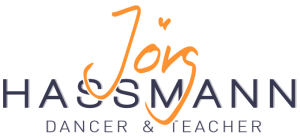Performing Improvisation – What are we doing here?
I have big doubts about beforming Improvisation, especially Contact Improvisation. Under the pressure of satisfying the audience’s needs we easily fall back into our fear patterns and start doing childish or selfish things nobody really needs to see. I am grateful when I have the opportunity to understand more deeply, the motivations and traps in performing. Here some thoughts and experiences through working and performing with Chris Aiken.
In the dance I rather easily find myself inspired and fully alive. Other people find their aliveness more easily in writing, cooking, mathematics or doing sports. I do it in dancing. It feels like a natural desire to share my passion with others. Usually I do it through dancing with people and – as the main part of my profession – through teaching, where I create a frame for people to get a taste of what I feel gives meaning to movement and touch. As satisfying as that is I still have the desire to share my aliveness of the dance with people, who wouldn’t dare to dance themselves. That’s probably the reason why I still occasionally perform improvisation.
I found for myself that CI based improvisations need to be built on the question ‘Will I find a way to dance stage?’ and the answer has to be open. I might fail or just have very brief moments that feel like dancing. I mean ‘dancing’ in a way, where I feel what’s happening in my body based on proprioception and physical sensations, which allows me to notice as many internal connections as possible, initiations and mechanics of movements, or stiffnesses and hesitations in my body. I mean ‘dancing’ in a way, where I find a state of curiosity in my body and mind, a sense of playfulness and discovery with all the time that I need for it.
This is the base for my felt sense of ‘I am dancing’. From this point many other choices that I make start making sense. I am working towards the state of co-existence with my co-performers, so that I can stay true to my needs and curiosities while noticing where the others are and what they are doing. Interactions become effortlessly available but they don’t become a necessity to survive. And last but not least I need to acknowledge the presence of the audience. They are my guests and I like them to feel welcome. I don’t dance to fulfill their needs and I also don’t pretend they were not there and I don’t care. I have to care. If I want it or not the audience has a strong effect on how I feel and what I dare to do. I need to notice these impacts on me and make conscious choices about it.
So, these are the four levels of awareness that I wish to find a presence in my dance on stage:
-
Physical awareness for connections within my body
-
A mental state of curiosity & discovery,
-
Connections to my co-performers, while being self contained
-
An acknowledgement of the presence of the audience.
Within and between those levels I make my compositional choices. For each of those four levels I need my tools which ideally fall intuitively into the dance.
While working with Chris towards an improvised performance I became aware of a fundamental problem. If my motivation to perform is to share what I love, to share my dance with people watching it – what is the justification for the performance if I don’t manage to enter my state of ‘I am dancing?’ What’s the point of a performance when I feel lost on stage, just trying to survive by using my compositional tools as good as I can? Is that the risk I take and the risk the audience needs to be willing to take when they decide to watch an improvised performance? Chris was very clear and easy with that and he really impressed me. He had wonderful ways to put it into words. Unfortunately I am pretty bad at remembering words… but I understood something and want to try to find my own words for it.
What I deeply want to avoid in performing is to fall into my habitual fear patterns, where I start imagining what the audience might like, what makes them laugh or pulling off some dance skills that might impress them or even worse – playing bad theatre because I don’t trust my own art.
What Chris said was centered by integrity and humanity. If we don’t find the dance we need to work, sometimes very hard. We might need to force us to go through a longer phase of bumpiness in a Contact duet instead of giving up quickly. We might have to stay longer with moments of unclarity, daring to stay lost and forcing us to calm down as good as we can and to open our senses as much as we can. We might need to change everything and see what happens.
Working means not to run away from the fear, not to hide and pray that it may be over soon. Working means to not follow the power and blindness of the fear, making stupid, disconnected and unconscious choices. And working doesn’t mean to pretend everything is wonderful and put on a fake smile.
As improvisers we want to reach a skillfulness that the audience doesn’t need to worry about us. They can see, that we are working hard. Life is sometimes hard, that’s ok. It is also ok to be scared, as long as we don’t become the victim of our fear. Our potential gift is to stay in charge of our actions, to stay honest and to make choices from a place of integrity. We are not perfect but we should become strong enough to stay vulnerable and to not give up. We owe the audience and ourselves to do the best we possibly can – and they may do their part. And that is enough or maybe even much more than enough.
After I got this far with this text, Chris sent me some thoughts from his perspective about the issue of not finding the dance on stage:
“We make the best decisions we can utilizing our skill and experience. The goal for me is to engage with the process of making and the process of engagement. Failure is inevitable. Flow states are possible, where I am in tune with my environment and myself, able to access my creative imagination, my physical intelligence and emotional self. But when I am not in the flow, when I am working to find myself and to reorient, it is okay. This is part of the work too. Using my skills to creatively survive is part of the work. This is where the training makes a difference.
My training allows me the confidence to hang in there and figure things out. It allows the audience to see me working without needing to take care of me. It allows them to see humanity in action. It allows them to celebrate the possibilities of creative survival. Skill, imagination, compassion and empathy form the ground of our shared experience.”
As I said: Beautiful words… “To celebrate the possibilities of creative survival. Skill, imagination, compassion and empathy form the ground of our shared experience” I guess this is the reason for a slightly disturbing experience Chris and me and probably most improvisers share: after performances, where we felt so good and in the flow, the audience sometimes isn’t as enthusiastic as we imagine it to be. And on the other hand in performances, where we had to work so hard and struggle our way through, people are sometimes really touched and excited.
It’s not just in our hands. Maybe that is healthy to remember sometimes – not just on stage …

